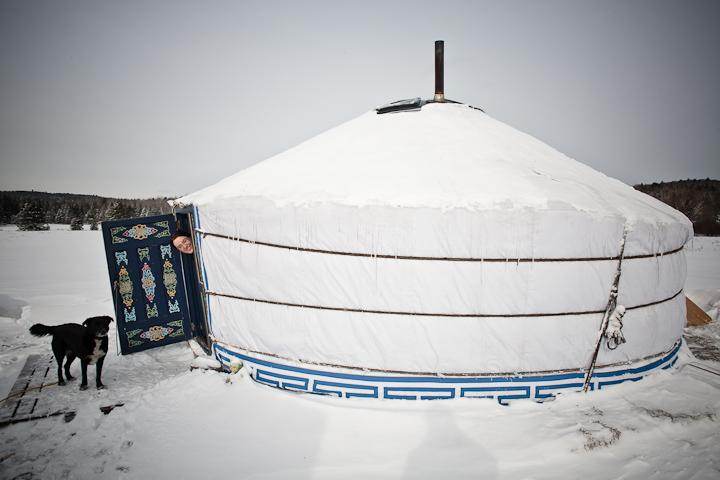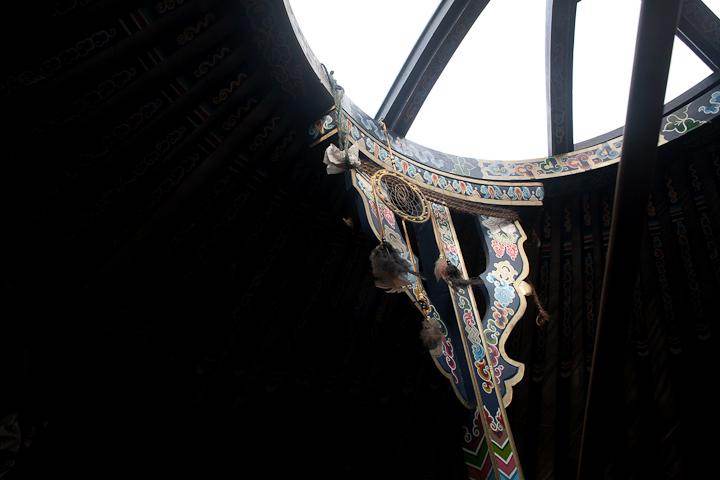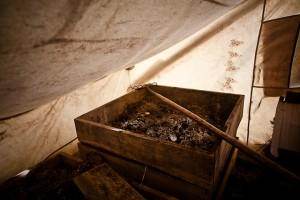After 18 months of not working (due to pregnancy and maternity leave), I'm going back tomorrow. I won't have very much time to write, so I figured I should tell you more about Peter now, or it might get forgotten.
Peter. What a complicated man. I've never met anyone like him. Of course, this comes from someone who loves him, so you might say that it's through pink colored glasses. I'm not going to talk about his qualities and defaults though, so my subjectivity (Is this even a word?) won't matter as much.
Peter's always been a country boy - raised in a little rural town outside of Kingston, he grew up haying, having his garden, playing in and on the lake. The first time he had a near-death experience was when he had a snowmobiling accident going way too fast. He recovered well, but when he dances, his hips won't move. When he was in college, he would wake up extra early to go to his job, milking cows, and then go to class smelling like a barn. He got his Forestry technician certificate. During the summers, he was working for the Ministry of Natural Resources in fire control - after he was done his program, they wanted him as a team leader, but he refused. He still talks about it, saying that he would have been "set" if he had accepted. "Set" for money, but definitely not happy.
He went back to school for urban tree something or other - started climbing trees, pruning, doing difficult technical tree removals and whatnot. Hydro Ontario picked him up and he was their little golden boy for 2 years. When Hydro was having to lay off some people, they offered Peter a farewell package since he was so new. He hated working for someone else, so he took the money, bought a house and started his own company. For the next fifteen years, he worked for himself and employed 4-6 people year round.
After falling out of trees multiple times, his body was way out of balance, and he got really hurt lifting up a Santa Claus-shaped bottle of maple syrup out of the fridge door. Couldn't walk anymore. The dr told his he had 2 seriously herniated disks in his spine that he could have a surgery where they shave off what is sticking out. He refused, wanting to keep his body intact. He got alternative treatments, let go of his business, moved to a big property, and started crawling in the garden. He did what he could - weed, plant, whatever. His body became better with time, and when I met him, he was unstoppable. He had made a body-products workshop for his girlfriend, renovated the barn, made a workman's fence using logs that he had ax-split himself, was doing the hay by himself for his 6 horses, logged on his property with the horses and made his firewood, and on and on. He was only there for 3 years, but so much had been done that you could have sworn his family had been there for generations.
Well, by the time we met, his girlfriend wasn't anymore, he was going out with the "lead renter" where I was at. Anyways, after having a summer full of fun getting to know each other as friends, things fell out with the lead renter, we started being a thing, and I got kicked out of the house before the internship was over because of it. Oops.
So Peter had a mortgage on this place - a crazy big one, too. Something like $1000 a month for 40 years or something. It was HUGE, alright? Eventually, the property was sold, but we had stopped living there long before.
Multiple places with multiple adventures every time:
1 - we went to Northern Quebec and lived on the beach for a month in early June in a prospector's tent(it was soooo cold!)
2 - Northern Ontario in the tent, next to a lake for 2 months.
3 - Met a guy at the tent location that would rent us his tiny cabin for $100/month. Stayed there for 2 months.
4 - Moved to a neighbor's in the middle of the field in our new yurt
5 - Moved to another neighbor that had an eco-lodge in a log cabin, then in the yurt
6 - Moved to Northern Quebec in a basement apartment, then a friend's place, then our current place.
Peter made a space for a garden at locations 3-4-5-6(two places). He made a spot to set up the yurt in 3 places in location 6. We've been in this current place for 2 years, in this city for 3. We've known each other for 5 1/2 years, but with the amount of things we've done/went through, it feels like 15.
We're tired of being in the wrong place. We want to root ourselves where we can be ourselves and work WITH people. Peter's been taking advantage of so many times because he's always willing to help. He's a bit more wise now that he's done so many things for others and gets no help in exchange. I don't know what the contrary of lazy is, but that's what he is. A lazy day for him is going to the chickens in the morning, shoveling the snow in the yard, doing the firewood for the next week, doing the dishes. He'd almost be depressed because he doesn't feel like he's moving towards his goals. Living in the basement apartment in town was the worst for him. He had nothing to do, and so he felt useless.
So there you go, a small history of the man. He has lots of stories about his past that he likes to tell - arborists shove a lot of living in a little time, and I agree. Life certainly hasn't been boring since I've met him.













